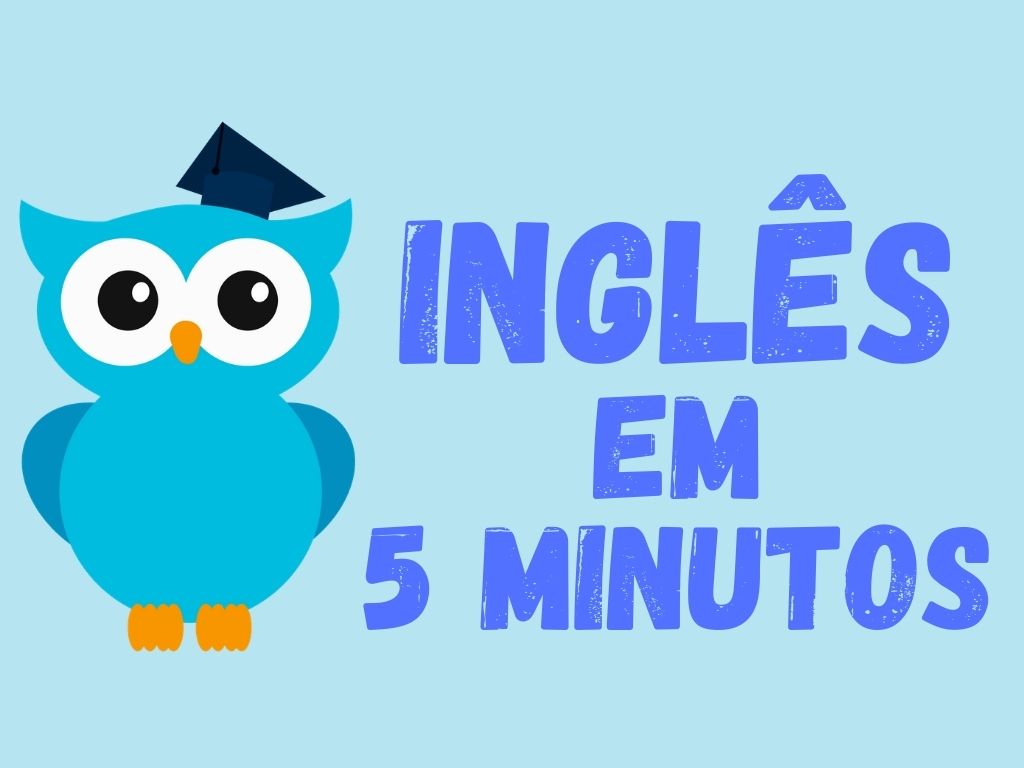Appropriate
When a thing is appropriate, it is right or normal.
It’s appropriate to wear a suit when you go to the office.
Quando uma coisa é
appropriate, é certa ou normal.
É apropriado usar um
terno quando você vai para o escritório.
Avoid
To avoid something is to stay away from it.
Avoid the broken bottle on the floor.
To avoid algo é ficar
longe dele.
Evite a garrafa quebrada
no chão.
Behave
To behave is to act in a particular way, especially to be good.
She always behaves well when her father is around.
To behave é agir de
determinada maneira, principalmente ser bom.
Ela sempre se comporta
bem quando o pai está por perto.
Calm
When someone is calm, they do not get excited or upset.
A nice warm bath makes me feel so calm.
Quando alguém está calm,
não fica empolgado ou chateado.
Um bom banho quente me
deixa tão calma.
Concern
Concern is a feeling of worry.
I was filled with concern after reading the newspaper.
Concern é um sentimento
de preocupação.
Fiquei muito preocupado
depois de ler o jornal.
Content
To be content is to be happy and not want more.
The baby looked very content sitting on the floor.
Estar content é ser feliz
e não querer mais.
O bebê parecia muito
contente sentado no chão.
Expect
If you expect something to happen, you believe it will happen.
I expect the bus to be here very soon.
Se você expect que algo
aconteça, você acredita que acontecerá.
Espero que o ônibus
chegue logo.
Frequently
When something happens frequently, it happens often.
We meet frequently, either at the beginning or ending of the week.
Quando algo acontece com
frequently, acontece com frequência.
Nos encontramos com
frequência, seja no início ou no final da semana.
Habit
A habit is a thing that you do often.
Smoking is a bad habit that can kill you.
Um habit é algo que você
faz com frequência.
Fumar é um mau hábito que
pode matá-lo.
Instruct
To instruct is to teach.
My teacher instructs us in several subjects.
Instruir é ensinar.
Meu professor nos instrui
em vários assuntos.
Issue
An issue is an important topic.
The men spoke about issues that were important to the people.
Uma issue é um tópico
importante.
Os homens falaram sobre
questões que eram importantes para o povo.
None
None means not any of someone or something.
He spent all his money. There is none left.
None significa nada de
alguém ou alguma coisa.
Ele gastou todo o seu
dinheiro. Não sobrou nada.
Patient
If a person is patient, they don’t become angry or upset easily.
I had to be patient and wait until 5 o’clock to leave.
Se uma pessoa é patient,
ela não fica com raiva ou chateada facilmente.
Tive que ter paciência e
esperar até as 5 horas para sair.
Positive
If something is positive, it is good.
She has a positive future ahead of her after finishing college.
Se algo é positive, é
bom.
Ela tem um futuro
positivo pela frente depois de terminar a faculdade.
Punish
To punish means to make someone suffer for breaking the rules or laws.
To punish me, my teacher had me stand in the corner.
To punish significa
fazer alguém sofrer por quebrar as regras ou leis.
Para me punir, meu
professor me colocou de pé no canto.
Represent
To represent is to speak or act for a person or group.
My lawyer will represent me in court.
To represent é falar ou
agir por uma pessoa ou grupo.
Meu advogado me
representará no tribunal.
Shake
To shake is to move back and forth or up and down quickly.
When people shake hands, it usually means they agree.
To shake é mover-se para
frente e para trás ou para cima e para baixo rapidamente.
Quando as pessoas apertam
as mãos, geralmente significa que concordam.
Spread
To spread is to move quickly to more places.
I like to spread butter on my toast.
To spread é mover-se
rapidamente para mais lugares.
Eu gosto de passar
manteiga na minha torrada.
Stroll
To stroll means to walk slowly and calmly.
My dog and I strolled through the park today.
To stroll significa
caminhar devagar e com calma.
Meu cachorro e eu
passeamos pelo parque hoje.
Village
A village is a very small town.
There are only a few houses in my village.
A village é uma cidade
muito pequena.
Existem apenas algumas
casas na minha aldeia.
The Dog’s Bell
John’s dog was a bad dog. He bit people frequently. John had great
concern about this. It was not an appropriate way for a dog to behave. His
friends in the village always expected the dog to bite them. The news about
John’s dog spread through the village. None of the people wanted to go to
John’s house. John tried to instruct the dog to behave, but it never worked. He
tried to be patient and teach the dog to be calm. That also didn’t work. John
didn’t want to punish the dog. “How will I stop my dog’s bad habit?” John asked
himself. John’s friend came to talk to him about the issue. During their
important meeting, his friend said, “The people in the village asked me to
represent them. We want your dog to stop this habit. Why don’t you put a bell
around the dog’s neck? This way, we would hear your dog coming down the
street.” John thought this was a great idea. Now, people could stay away from
the dog. It would not be able to bite anyone anymore. The dog liked the bell,
too. People looked at him when they heard his bell. This made the dog very
content. He liked the song the bell played when he walked. One day, John’s dog
strolled through the village and met some other dogs. He expected them to want
a bell like his. But they laughed at his bell. They said the bell made people
avoid him. John’s dog shook his head. “No, they look at me because they like
the bell.” The other dogs said, “You have the wrong idea of what makes you
popular. Of course they like your bell. It tells them where you are so they can
avoid you. You aren’t able to bite them anymore!” You see, being popular isn’t
something positive when it’s for the wrong reason.
O Sino do Cachorro
O cachorro de John era um cachorro mau. Ele mordia as pessoas com frequência. João tinha grande preocupação com isso. Não era uma maneira apropriada para um cachorro se comportar. Seus amigos na aldeia sempre esperavam que o cachorro os mordesse. A notícia sobre o cachorro de John se espalhou pela aldeia. Nenhuma das pessoas queria ir para a casa de John. John tentou instruir o cachorro a se comportar, mas nunca funcionou. Ele tentou ser paciente e ensinar o cachorro a ficar calmo. Isso também não funcionou. John não queria punir o cachorro. “Como vou acabar com o mau hábito do meu cachorro?” João se perguntou. O amigo de John veio falar com ele sobre o assunto. Durante sua importante reunião, seu amigo disse: “As pessoas da aldeia me pediram para representá-los. Queremos que seu cão pare com esse hábito. Por que você não coloca um sino no pescoço do cachorro? Dessa forma, ouviríamos seu cachorro descendo a rua. John achou que era uma ótima ideia. Agora, as pessoas podem ficar longe do cachorro. Não seria mais capaz de morder ninguém. O cachorro também gostou do sino. As pessoas olhavam para ele quando ouviam seu sino. Isso deixou o cachorro muito contente. Ele gostava da música que o sino tocava quando ele caminhava. Um dia, o cachorro de John passeava pela vila e encontrou alguns outros cachorros. Ele esperava que eles quisessem um sino como o dele. Mas eles riram de sua campainha. Disseram que o sino fazia as pessoas evitá-lo. O cachorro de John balançou a cabeça. “Não, eles olham para mim porque gostam do sino.” Os outros cães disseram: “Você tem uma ideia errada do que o torna popular. Claro que eles gostam do seu sino. Ele diz a eles onde você está para que eles possam evitá-lo. Você não consegue mais mordê-los!” Veja bem, ser popular não é algo positivo quando é pelo motivo errado.

